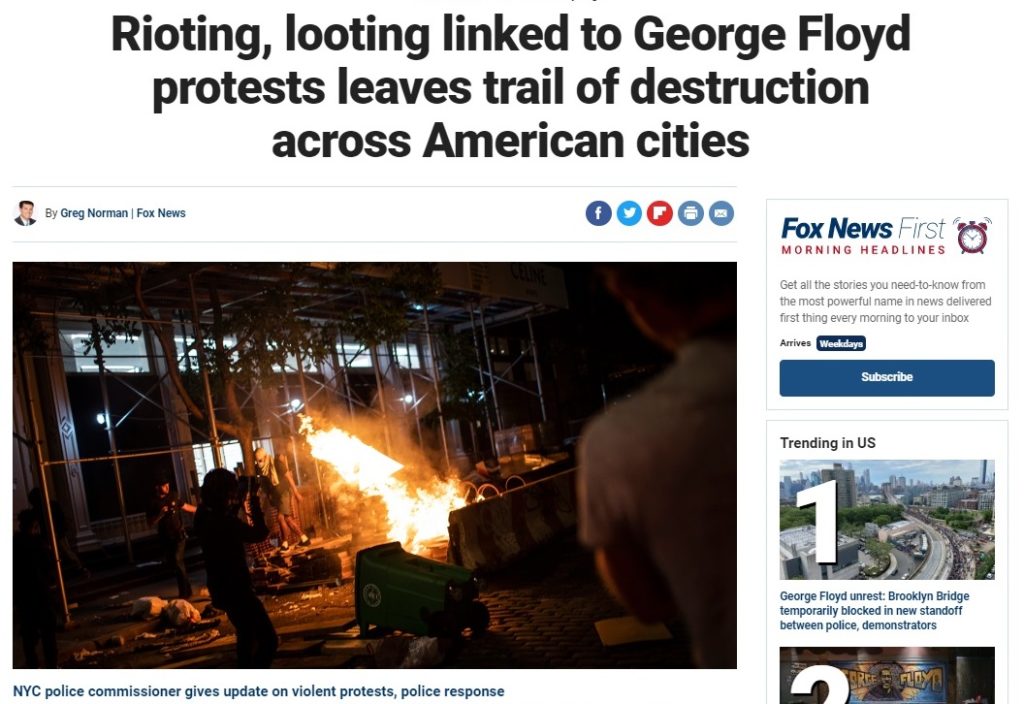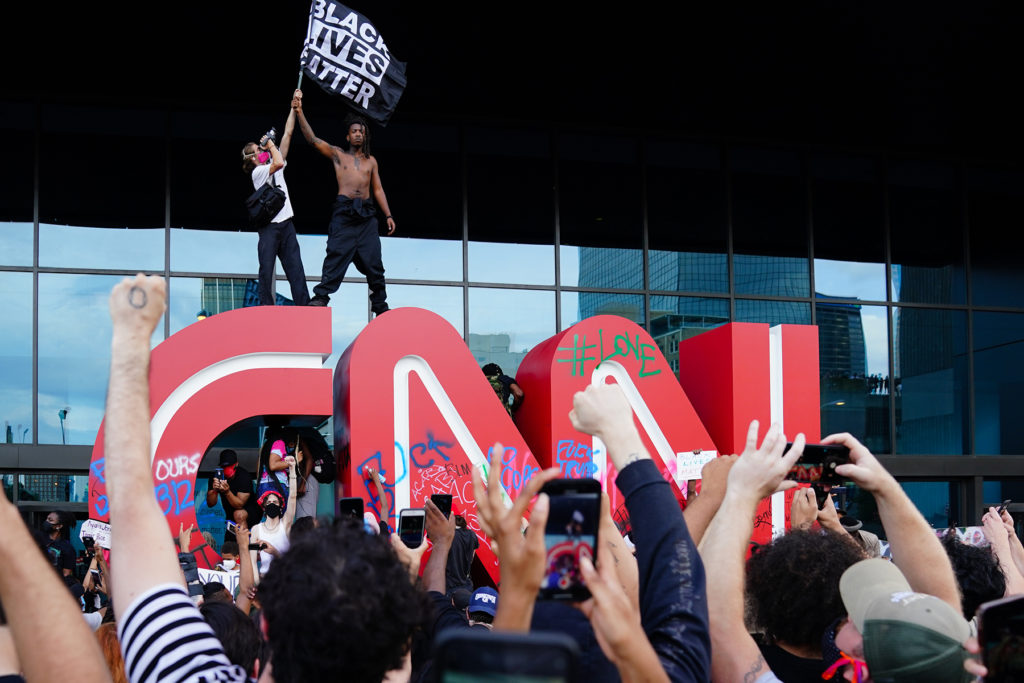I need to preface this by stating I normally don’t share my personal views on sensitive political topics. I suppose I’ve been afraid of getting into contentious debates with friends and colleagues, or ultimately landing on the wrong side of history. In retrospect, it’s pretty ironic that I’ve held off for as long as I have. After all, I believe that media and entertainment constantly shape important aspects of culture. Why wouldn’t I use my own voice to do the same?
Given the state of affairs today, I know the topic at hand is far too important to stay silent. So let’s get into it: Let’s talk about George Floyd, Black Lives Matter, and why the media needs to do better.
Remind Me Again, Why is Everyone Rioting?
On May 25th in Minneapolis, Goerge Floyd was killed after police officer Derek Chauvin knelt on his neck for almost nine minutes – a clear illustration of racially fueled police brutality. Floyd was initially stopped by police under suspicion of using counterfeit money at a local grocery store. Moments later, one of the officers pulls his gun, puts Floyd in handcuffs, and removes him from his vehicle. Finally, once Floyd collapses before entering the back of a police car, Derek Chauvin kneels on his neck, and continues to do so well after Floyd stops showing any signs of consciousness.
This upset, however, is about far more than George Floyd, as tragic and unjust as his death was. The world is in uproar because of centuries of systemic racial discrimination that has finally reached a tipping point. A tipping point that’s only amplified by the disproportionate impact that the COVID-19 pandemic has had on African American communities. Just more evidence to support the fact that these communities are structurally underserved in matters of health, safety and economy. These events have inspired the entire world to demonstrate their advocacy through a variety of ways: petitioning, protesting, and rioting, to name a few. Even those across the pond here in London have taken to the streets, rallying at landmarks like Hyde Park and the US Embassy.
Embed from Getty Images
The primary objectives of this advocacy are twofold. The first piece is to get justice for George Floyd’s death, ensuring that the police involved in his death are held accountable, and are punished proportionately to the severity of their crime. The second piece is police reform, an ask for police forces to build and act on a plan to end police brutality and racial discrimination. The sentiment towards this advocacy, however, has been hugely polarizing, and the media, unsurprisingly, has played a major part in that.
There are Two Predominant Attitudes Towards the George Floyd Protests
The first attitude is in clear favor of the protests. It’s a way to advocate for a future without fear, when the alternative is to live in a society where you constantly feel like your life is at risk because of the color of your skin. In some cases, these protests have turned into riots. Sometimes, those riots have evolved into acts of violence and looting. But in many cases, this violence was instigated by militarized police and antagonistic bad actors. And in any case, the Black Lives Matter movement has already tried kneeling, marching, lobbying, and every other form of peaceful protest. Maybe the violence and looting are necessary. What else needs to happen before our leaders wake up and listen?
The second attitude views the protests as unjustified chaos. The riots are an excuse to cause destructive mayhem in the community, and they threaten the police who are meant to protect us. Small businesses have been destroyed, violence has set back the Black Lives Matter movement, and the call to action is ambiguous or non-existent. What do you hope to achieve with these protests? To what end will you destroy private property?
There you have it, both sides of the coin. I just saved you from having to read another headline. In reality, these two narratives are far more complex than a couple of paragraphs, but there’s an important point I’m trying to make here:
The Media’s Coverage of the Black Lives Matter Movement is Stuck in an Echo Chamber
The huge issue with these two polarizing schools of thought is that they only cater to two specific audiences.
Those who are for advocacy will continue to support it and drive towards change. However, the story they are told is that the opposition continues to provoke them, humanity is restless, and all progress is on hold. Conversely, those who oppose the protests continue to see anarchy. Riots have damaged the economy, threatened our men and women in uniform, and the call to action from these riots is drowned out by the madness. I mean, just look at these two headlines:


You know that these articles will not inform their readers. They will only reinforce the preconceived ideas that their readers already have. They won’t expand on our society’s understanding of current events in any way.
This needs to stop.
How can we make progress without complete information? The media needs to stop entertaining their audiences at the cost of misinforming them by omission.
Share Contrasting Points of View
If your readers fall into the camp of people who do not understand why some demonstrations lead to looting, you need to tell them the other side of the story. If your readers believe that protests have led to widespread violence, you need to tell them about the vast majority of protests that have been peaceful, productive, and touching. And if your readers are afraid that the police only show up to cause problems, you need to tell them about the droves of police who stand with the Black Lives Matter movement and who can be mobilized as change agents.
I know that it’s easy — and justified — to be in complete and total uproar. But as we focus our actions on long-term, sustainable solutions, we also need to remember and leverage the fact that reality is hardly ever as polarizing as the media makes it out to be. It is the media, more often than not, that is perpetuating those extremes.
If you’re affiliated with the media or a news agency right now, you need to acknowledge that your work will directly influence the impact of the Black Lives Matter movement, and in turn, the future safety and security of African Americans. You owe it to the communities you serve to ensure that your constituents feel protected wherever they are, and you cannot do that without shining a light on the nuance that is so easy to ignore. Share the whole story, push to drive change, and put pressure on governments to reform racist social systems. You can alter the course of history, for better or for worse. Do your part. The world will thank you.
If you liked this post, sign up for my newsletter in the navigation bar. Every couple of months, I’ll send you a personalized summary of my latest writing.

One Response